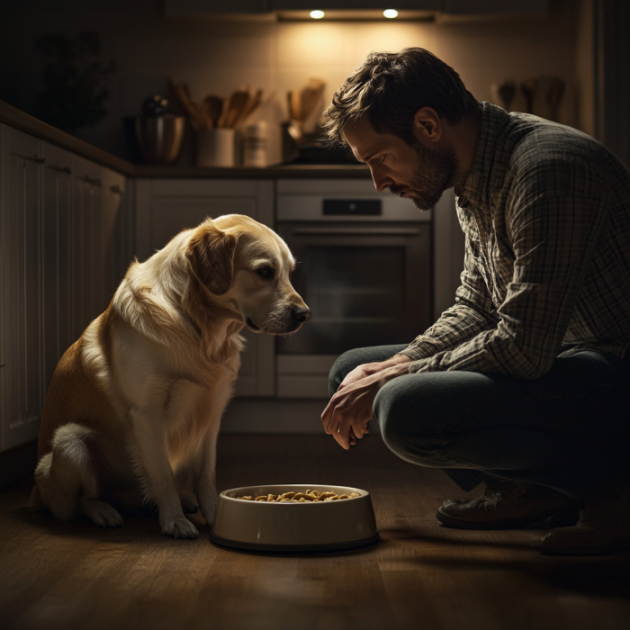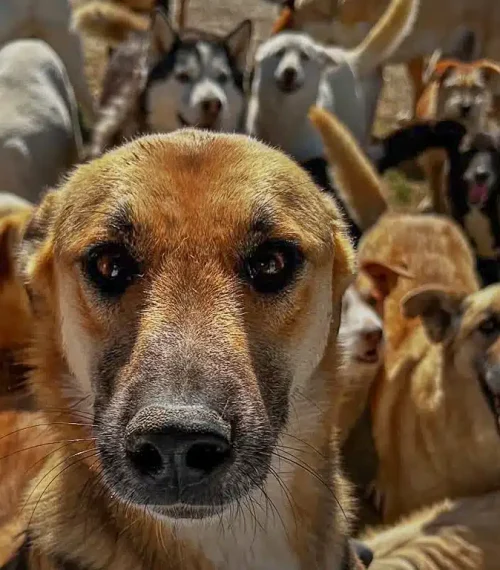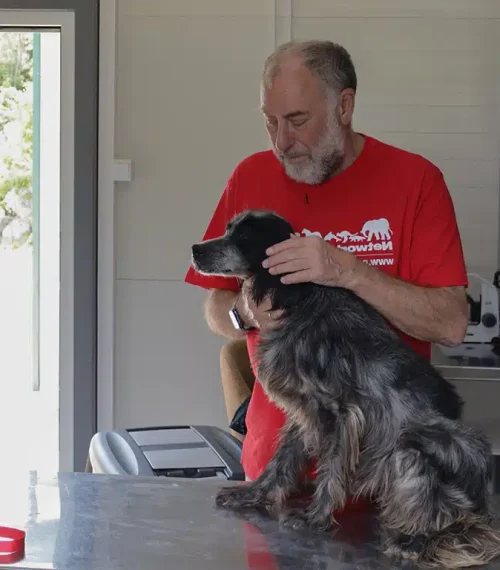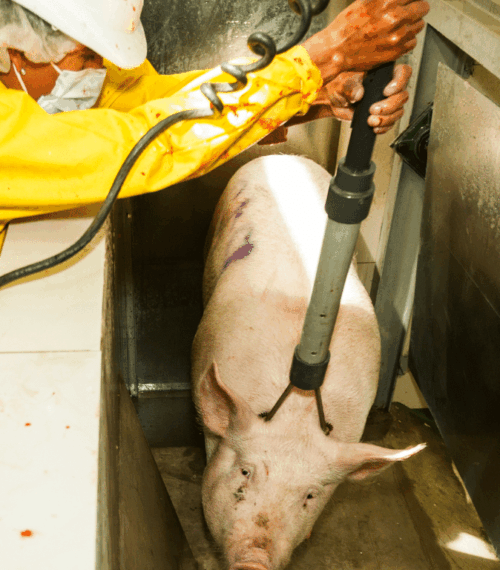If your dog is not eating, it could be due to various reasons, from health concerns to behavioral changes. Learn the 8 potential causes behind your dog’s loss of appetite and what to do about it.
Is Your Dog Not Eating? Here Are 8 Potential Reasons Why They’re Skipping Dinner
If you’ve noticed that your dog is not eating, it can be alarming, especially if your furry friend usually enjoys their meals. There are many reasons why a dog might skip dinner, and understanding these potential causes can help you address the issue promptly. In this article, we’ll discuss 8 potential reasons your dog might not be eating, ranging from medical problems to behavioral changes.
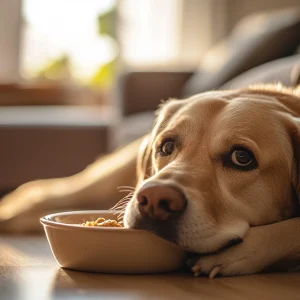
Why Is My Dog Not Eating? Understanding 8 Potential Reasons
When your dog is not eating, it’s important to investigate the root cause. Here are 8 potential reasons why your dog might not be interested in their meals:
1. Health Problems Can Cause Your Dog to Skip Meals
Health issues are one of the most common reasons why dogs stop eating. Conditions like dental problems, gastrointestinal issues, infections, or even pain can make it difficult for your dog to eat. If your dog’s loss of appetite is persistent, it’s important to consult a veterinarian to rule out any underlying health conditions.
Signs of Health Problems in Dogs:
- Difficulty chewing or swallowing
- Vomiting or diarrhea
- Lethargy or unusual behavior
- Drooling excessively or pawing at their mouth
2. Stress or Anxiety Can Make Your Dog Lose Their Appetite
Stress and anxiety are common causes of appetite loss in dogs. Major changes in their environment, such as moving to a new home, a change in routine, or the addition of a new family member or pet, can trigger stress in dogs. These emotional changes can lead to a decreased interest in food.
Signs of Stress in Dogs:
- Pacing or whining
- Hiding or avoiding people
- Trembling or shaking
3. Dietary Preferences and Fussy Eating Habits
Just like humans, dogs can be picky eaters too. If your dog is not eating their usual food, it might be because they’re bored with the flavor or texture. Dogs may also skip meals if they’ve been offered the same food for a long time. Try rotating your dog’s food to see if they’ll be more inclined to eat.
Signs of a Fussy Eater:
- Turning their nose up at food
- Preferring certain treats over meals
- Not finishing their bowl of food
4. Overfeeding or Treat Overload
Sometimes, dogs stop eating because they’ve had too many treats throughout the day. If you’ve been overfeeding your dog with snacks or table scraps, they might not feel hungry at mealtime. This is especially common with training treats or scraps from family meals.
How to Fix Overfeeding:
- Limit treats to avoid spoiling their appetite
- Ensure your dog’s regular meals are nutritionally balanced
5. Food Allergies or Sensitivities
Food allergies and sensitivities can lead to a dog not eating, especially if they are intolerant to certain ingredients in their food. Common allergens for dogs include grains, chicken, beef, or dairy. If you suspect your dog has food allergies, you should switch to a hypoallergenic diet and consult your vet for further testing.
Signs of Food Allergies in Dogs:
- Itchy skin or hot spots
- Vomiting or diarrhea
- Gas or bloating
6. Age-Related Changes Can Affect Your Dog’s Appetite
As dogs get older, they may experience a decrease in appetite due to age-related conditions like arthritis, cognitive dysfunction, or a decline in senses. Older dogs may find it harder to chew or may lose interest in food altogether. If you have a senior dog, it’s essential to monitor their eating habits and check for any underlying health concerns.
Signs Your Older Dog May Be Losing Their Appetite:
- Difficulty chewing or swallowing food
- Changes in behavior or sleeping patterns
- Weight loss or muscle atrophy
7. Medications and Treatments Can Cause Appetite Loss
Certain medications, especially those used for pain, inflammation, or infection, can affect your dog’s appetite. If your dog has recently started a new medication or is undergoing treatment, it might be worth investigating whether appetite loss is a side effect.
Managing Appetite Loss Due to Medication:
- Discuss the side effects of any medications with your veterinarian
- If appetite loss is severe, ask about alternative treatments
8. Environmental Factors Can Influence Your Dog’s Eating Habits
Changes in your dog’s environment can also impact their appetite. This could include anything from moving to a new house to the presence of new animals or loud noises. Additionally, the weather can influence your dog’s desire to eat, especially in extreme temperatures.
Signs of Environmental Stress:
- Increased restlessness or agitation
- A lack of interest in their surroundings
- Avoiding their food bowl when it’s placed in certain areas
How to Address Your Dog’s Loss of Appetite
If your dog is not eating, it’s crucial to observe their behavior and overall health. Here’s how you can address the issue:
Consult a Veterinarian
If your dog’s appetite loss persists for more than 24-48 hours, it’s important to consult a veterinarian. Your vet can run tests, check for underlying conditions, and provide guidance on treatment options.
Adjust Their Diet
Try offering different food options to see if your dog’s tastes have changed. Consider high-quality wet food, or home-cooked meals if your dog is more interested in those. Always transition food slowly to avoid digestive issues.
Manage Stress and Anxiety
If your dog’s appetite loss is due to stress, try to reduce stressors in their environment. Provide a quiet and safe space, and use calming supplements or pheromone diffusers to help them relax.
Monitor Their Behavior
Keep track of your dog’s behavior and eating habits. This will help you identify patterns or triggers that may be contributing to the loss of appetite. Keeping a journal of their symptoms can be useful when speaking with your veterinarian.
Conclusion
Understanding why your dog is not eating is the first step toward addressing the issue. By considering health, dietary, and environmental factors, you can pinpoint the cause and take the necessary steps to help your dog regain their appetite. If the loss of appetite persists, don’t hesitate to reach out to a veterinarian for further evaluation.











































































































